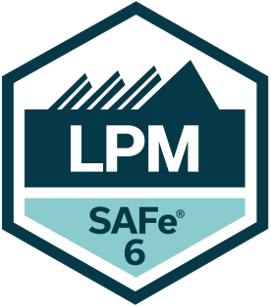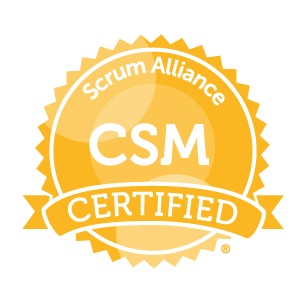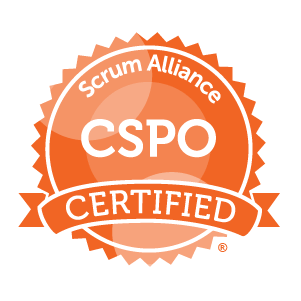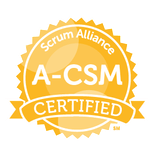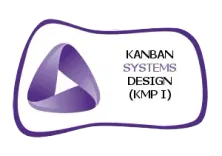With Agile Methodologies like Scrum, Kanban and more being adopted by various organizations, more project manager transition are happening into Scrum Masters. Luckily for them, Scrum Masters can come from any background.
However, the roles are not the same.
Who are Project Managers?
Project Managers are professionals that organize, plan, and execute projects while paying attention to budgets and schedules. They manage teams, define goals, communicate with the stakeholders and see projects to completion.
Project Managers usually have varying skill set that allows them to approach each project in a different way, thus proving that they drive the success of the project.
Roles and Responsibilities
Usually, when there’s a new project, it is divided into different parts, they are initiation, planning, execution, and closure.
This is where Project Managers come in and are responsible for;
- Setting the scope of the project.
- Sticking to the schedule.
- Estimating a budget and making sure it’s adhered to.
- Managing project resources such as teams.
- Documenting the progress of the project.
- Communicating with stakeholders.
- Evaluating the risks of a project.
- Troubleshooting any problems with the project.
- Leading quality assurance of the product.
Skills of a Project Manager
With such varying degrees of responsibility, it’s no wonder Project Managers require a long list of skills. They are;
- Leadership Skills
Project managers need this skill as it is critical for successful project management and will enable them to handle their teams.
- Effective Communication Skills
Project Managers need this skill to share their goals, ideas, vision and to produce presentations for their team.
- Organization Skills
This skill is needed to make sure that they can multitask, prioritize important tasks, compartmentalize projects and document everything for future reference.
- Time Management
This skill is required to ensure that deadlines are met throughout the project life cycle.
- Creative Problem Solving
This is a necessary skill to help weigh the pros and cons of any problem to get to the right solution.
- Adaptability
As a Project Manager, you must adapt and stay on top of ever-changing market trends, new technology, user demographics and more.
- Team Management
This is a necessary skill to make sure that your team is working together, towards the same goal.
- Risk Management
Since risks are always inevitable during the project stage, this skill can help project managers analyze risks to develop risk mitigation strategies.
- Research Skills
These skills allow them to fill in any gaps of knowledge which can help them finish the project in a more efficient way.
- Technical Skills
Being familiar with the tech and having hands-on experience can help you increase your team’s productivity.
Who are Scrum Masters?
Scrum Masters are professionals who act as a coach and guide to ensure their team understands and follows the Scrum framework along with it’s values, principles and processes.
They also ease communication and collaboration between the team members to ensure successful outcomes.
Roles and Responsibilities
A day in the life of a Scrum Master can be hard with the long list of responsibilities put in front of them, they are;
- Implement the best practices.
- Ensure that everyone is kept upto date on the progress of the task.
- Encourage the use of continuous integration (CI) and automation.
- Keep the team organized and on track by hosting daily stand-up meetings, sprint planning meetings, sprint reviews, etc.
- Help the team stay focused on tasks needed to be done in each iteration.
- Help new members understand the scope and vision of a product and ensures work does not slow down.
- Ensure that the team is trained to understand Agile processes, the team members know their specific roles and are dedicated to the project.
Skills of a Scrum Master
Since agile processes are dependent on collaboration and team work, Scrum Masters must learn when to use which skill.
The Scrum Master skill list is also pretty long;
- Knowledge of Scrum
This is a necessary skill for Scrum Masters to help ensure that the team is following the right Scrum practices.
- Collaboration
This skill comes to use when working with multiple teams at the same time, Scrum Masters are meant to ensure that there is team collaboration within the organization.
- Critical Thinking
This skill is essential to identify and create strategies to protect against risk and lead to successful Scrum development projects.
- Organizational Skills
These skills are essential to assigning team roles, scheduling Scrum meetings and documenting changes to software products during each sprint cycle.
- Effective Communication Skills
These skills can help support your team and encourage open feedback loops, innovative developments and creative ideas, thus making them vital for Scrum Masters.
- Time Management
This skill can help teams prioritize work better and focus on what processes that bring value.
- Project Management
These skills can be used for budget allocation, scope analysis and feasibility testing to ensure successful software builds.
- Technical Skills
To take on the Scrum Master role, technical skills like software design and development, programming and process integration are necessary.
- Adaptibilty
This skill is the core of being an effective Scrum Master, it teaches how to adapt to the ever-changing system and the team’s needs.
Now that we know a little bit more about each role, let’s dive into the differences between Project Manager and Scrum Master:
| Project Manager | Scrum Master |
| Work on any type of project, like Agile or Waterfall. | Exclusive to Scrum projects and Scrum teams. |
| Focus on making a project work, mainly budgeting and risk management. | Focus on making sure a project team is successful. |
| Have large teams with more people and budget. | Has a small team to keep things simpler. |
| Free to tweak their approach which ranges from waterfall to adaptive. | Follows the scrum rules and favors the scrum framework. |
| Creates a schedule for each member and assigns tasks and responsibilities. | Coaches the team on scrum and motivates them. |
Skills required to become a successful Scrum Master
As with any profession, there are certain skills and knowledge that are required to become a successful Scrum Master.
Some of them are;
- Strong Scrum Knowledge.
This is absolutely necessary as understanding Scrum properly will help you use the framework in the right way.
- Technical Familiarity.
Learn how to develop software in an Agile environment to push teams ahead with proper tools and techniques to build better programs.
- Coaching Skills.
Scrum Masters must not only know what to do, but must be able to teach the team how to use the framework correctly.
- Be Adaptable.
Learn how to update customer analysis and stay up to date with the ever changing market trends.
- Team Collaboration.
Scrum teams thrive on team collaboration, learn how to handle conflict and ensure smooth sailing for your teams.
One way to make sure you’ve got all these bases covered is by becoming a Certified Scrum Master. Getting certified has a lot of benefits in itself but will also ensure a smooth transition from Project Manager to Scrum Master.
Why transition from Project Manager to Scrum Master?
But let’s see why Scrum Master is a great alternative in project management:
Unlike Project Managers, Scrum Masters find it easier to manage projects as the Scrum framework allows them to;
- Completely focus.
- Measure the results at the end of each Sprint.
- Faster time to market.
The Scrum methodology helps teams solve queries by communicating with each other. They can deal with the issues without the Scrum Master and the issues that aren’t solved are brought up during the ‘Daily Scrum’.
The Scrum method focuses on completing work in sprints that let clients get regular updates on the project.
The Benefits of becoming a Scrum Master
There are many benefits to transitioning into a Scrum Master from Project Manager, some of the main ones are;
- Improve your employment prospects.
Having Scrum Master skills and experience can help open up doors to better employment prospects.
- Be in demand.
As it is still a relatively new job role, the growth and demand of these roles are still steadily growing.
- Expand your network.
Expanding your network increases your market value, enhances Scrum knowledge and helps stay updated with Scrum.
5 steps for transitioning from Project Manager to Scrum Master
When transitioning from Project Manager to Scrum Master, there are a few key steps that you cannot leave out. They are;
- Learn What a Scrum Master does.
Learn the main roles of the scrum master to enable and help unlock value through the Scrum framework, and remove any obstacles that impair progress.
- Learn How to Use the Scrum Framework.
Learn the Scrum framework to help your teams identify how to prioritize opportunities and make changes in priorities.
- Become a Servant Leader.
You must learn how to lead with authority and expertise and know when to step back and let others take the lead depending on their experience and authority.
- Learn How to Be Proactive.
You will be expected to foresee possible errors and figure out whether they are safe, or whether they will lead to failure.
- Start Appreciating feedback.
As part of your new role, you will have to constantly come up with new ways to improve your feedback systems and help meet business outcomes.
Challenges faced while transitioning to Agile
Here are a few common challenges that have been identified over the course of the last few years;
- Adapting the right mindset and Agile thinking required.
- Requires significant change and can be realized only through hard work.
- Difficulty implementing Scrum and Agile in conjunction with others.
- How to stay on top of everything with documentation.
- Plan requirements without structured Waterfall phases.
5 tips for making the transition
Becoming a successful Scrum Master can be challenging, so here are a few tips to help you make the transition the right way;
- Be a Scrum Master, not a Project Manager.
Juggling two roles at once will be a challenge and can cause confusion in the team. Instead, focus on learning and mastering the scrum master role.
- Be ready to change your mindset.
Keep an open mind to change and let go of your old ways of thinking, this will help you pick up new practices for your role.
- Forget about tasks, focus on your team.
Focus on helping the team self-organize, and solve conflicts by creating an environment where people can be their best selves.
- Practice, practice, practice.
The best way to learn Scrum is by practicing it and receiving feedback from your coaches and mentors.
- Master Scrum
To be an efficient Scrum Master, it is necessary to train and coach teams on Scrum practices.
Project Manager Vs Scrum Master: Salaries
| Job Role | Average Salary |
| Project Manager | $35k-$105k Source |
| Scrum Master | $55k-$170k Source |
Conclusion
Making the transition from Project Manager to Scrum Master can be a little tricky but it is important to remember the tips that we went over in this blog.
As a Scrum Master, you should just leave some of those Project Manager habits behind but to do that, it is imperative that you are focused on the task ahead and get yourself certified to help with a smoother transition.



